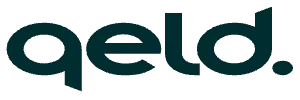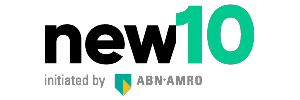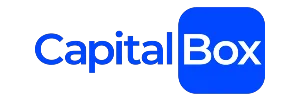Commercial Property Loan
Business Mortgage Netherlands
Finance offices, shops, or warehouses
Compare top business mortgage offers
Long terms and competitive rates

Recommended

Amount
€ 5000 – 250.000
Term
6-36 months
Interest rate
Varies
Verified Company
Non-committal application
Apply in 5 minutes
Example: Loan amount €40,000. Loan term 24 months. Interest rate 1.3% per month. Weekly payment €504.62. Total repayment €52,480. Repayment per week €504.62. Fixed interest 0.5% + premium surcharge 0.8%.

Amount
€ 5000 – 500.000
Term
3-24 months
Interest rate
1.0-2.3%
Verified Company
Fully English Site
In your account within 24 hours
Costs are based on your company’s risk profile. The one-time closing costs of 2% (minimum €650) are not included.

Amount
€ 1000 – 500.000
Term
1-18 months
Interest rate
Individual
Verified Company
Apply in 1 min
Payment within 24 hours

Amount
€ 1000 – 50.000
Term
1-36 months
Interest rate
2,4 %
Verified Company
5-star reviews
Quote same day
Example: Loan amount €19,000. Loan term 26 months. Interest rate 2.2%. Monthly payment €967.38. Interest & costs €236.61. Repayment per month €730.77. Total repayment €25,151.95.

Amount
€ 20.000 – 1.000.000
Term
3-60 months
Interest rate
3.8-12%
Verified Company
Customized offer within 15 minutes
Payment within 24 hours

Amount
€ 5.000 – 500.000
Term
12-60 months
Interest rate
3,0 %
Verified Company
Apply in 1 min
Payment within 24 hours
Example: Loan amount €200,000. Loan term 36 months. Interest rate 3.0%. Monthly payment €8,414.25. Interest & costs €2,500.00. Repayment per month €5,914.25. Total repayment €302,912.95.
Looking to buy commercial property in the Netherlands? A business mortgage loan lets you finance offices, retail space, or investment property—without draining your working capital. We show you how it works, what lenders require, and how to secure the best terms.
What Is a Business Mortgage Loan?
A business mortgage loan—also known as a commercial mortgage—is a long-term loan used to finance the purchase of commercial property. Unlike a standard business loan, this type is secured by the property itself and typically comes with lower interest rates and longer repayment periods.
In the Netherlands, business mortgage loans are commonly used to buy offices, warehouses, retail units, or investment properties for rental income. The property must be used for business or professional purposes, and in most cases, the lender will finance up to 60–90% of the property’s value, depending on risk profile and location.
These loans are available to various business structures—BVs, NVs, VOFs, and even some sole proprietorships—as long as the business can show stable income and repayment ability.
Who Can Apply for a Commercial Mortgage?
Business mortgage loans in the Netherlands are available to a wide range of legal entities, including BVs (private limited companies), NVs (public limited companies), VOFs (general partnerships), and in some cases sole proprietors. The key requirement is that the property is used primarily for business purposes—not as private housing.
Lenders typically require the business to have been active for at least 1 to 2 years, with stable revenue, positive cash flow, and a clear plan for how the property will support business operations or income generation. The property itself also plays a central role: it must have a solid market value, be in a commercial zone, and be acceptable as collateral.
Strong candidates often include businesses looking to:
- Buy their own office or shop instead of renting
- Acquire warehouse or production space
- Purchase commercial real estate for leasing purposes
Lenders will assess both the borrower’s financials and the quality and location of the property, as it serves as the primary security for the loan.
Types of Business Mortgage Loans in the Netherlands
Commercial mortgage products in the Netherlands come in several forms, each suited to different business models and cash flow structures. Choosing the right type depends on whether you want stable monthly payments, lower costs upfront, or maximum flexibility during ownership.
| Mortgage Type | Best For | Repayment Style | Fixed/Variable Rate |
|---|---|---|---|
| Standard Business Mortgage | Long-term property ownership | Fixed monthly payments | Fixed or variable |
| Interest-Only Mortgage | Lower monthly outgoings | Pay interest only | Often variable |
| Flexible Commercial Loan | Irregular cash flow or project-based | Custom terms | Variable or blended |
| Lease-to-Own Structure | Gradual purchase via lease payments | Lease → buy option | Agreed at signing |
Standard Business Mortgage
A traditional loan with a fixed repayment schedule over 10–20 years. Ideal for businesses wanting long-term ownership and stable monthly costs. Usually secured against 60–80% of the property value.
Interest-Only Mortgage
Only interest is paid during the term; the full principal is repaid at the end or through sale/refinancing. Suited for investment properties, businesses with predictable exits, or those needing maximum liquidity in the short term.
Flexible Commercial Loan
For businesses with irregular revenue cycles, lenders may offer tailored repayment plans with adjustable terms. Useful in sectors like logistics, agriculture, or project-based industries.
Lease-to-Own Structure
Combines leasing and purchase, allowing a business to rent the property with the option (or obligation) to buy later. Common with commercial developers or buyers needing more time before securing a full mortgage.
Loan-to-Value (LTV) and Financing Structure
When applying for a business mortgage loan in the Netherlands, one of the key factors is the loan-to-value (LTV) ratio—how much of the property’s value a lender is willing to finance. Most Dutch lenders will fund between 60% and 90% of the property’s market value, depending on the risk profile, location, and borrower strength.
For example:
- Owner-occupied property in a stable location may qualify for 80–90% LTV
- Investment or rental property typically falls in the 60–75% LTV range
- High-risk sectors or underperforming areas may be limited to 50–60%
This means you’ll often need to provide 10–40% equity upfront, either from business reserves, a capital injection, or subordinated loans. Some lenders may also allow a mix of equity and secondary financing.
The full financing structure usually includes:
- Primary mortgage (secured by the property)
- Optional personal or corporate guarantee
- Notarised valuation and legal due diligence on the property
- Additional collateral if LTV is too high or financials are borderline
Strong businesses with clean balance sheets and detailed property plans are more likely to secure higher LTV ratios and better interest terms.
Business Mortgage Loan Requirements Netherlands
To qualify for a commercial mortgage in the Netherlands, both the business and the property must meet specific criteria. Lenders assess your financial stability, repayment capacity, and the value of the property being financed. Documentation must prove both operational strength and property viability.
Core requirements include:
- KvK registration with at least 1–2 years of business activity
- Annual financial statements or recent profit & loss reports
- Cash flow overview and ability to cover monthly repayments
- Dutch business bank account
- Valid ID and proof of business address
- Property appraisal (taxatierapport) by a certified valuer
- Signed purchase agreement or intent-to-buy contract
Some lenders may also request:
- A business plan or investment justification if the loan involves expansion
- A personal guarantee from directors or owners
- Environmental risk assessment, depending on property type and zoning
Approval hinges not only on your business’s financials but also on the property’s location, condition, and resale value. The better the documentation and collateral, the more favorable the terms.
Business Mortgage Loan Interest Rates
Interest rates on business mortgage loans in the Netherlands are typically lower than for unsecured business loans—because the property serves as collateral. Rates vary based on factors such as loan-to-value (LTV), property type, repayment structure, and borrower risk profile.
| Loan Type | Typical Interest Rate | Rate Type | Secured? |
|---|---|---|---|
| Standard business mortgage | 3.5% – 6% | Fixed or variable | Yes (property) |
| Interest-only mortgage | 4% – 7.5% | Variable | Yes (property) |
| Flexible commercial loan | 5% – 9% | Custom (hybrid) | Often required |
| Lease-to-own structure | 5% – 8% | Pre-agreed | Usually yes |
Fixed-rate mortgages offer predictable monthly payments and are popular for owner-occupied properties. Variable rates can fluctuate with market conditions and are more common for investment properties or short-term arrangements.
Factors that influence your rate include:
- LTV ratio (lower LTV often gets better rates)
- Property location and condition
- Financial health of the business
- Length of the loan term
- Type of property (office, retail, logistics, etc.)
Tip: Always compare the effective interest rate (including fees) across providers—not just the nominal rate.
How to Apply for a Business Mortgage
Applying for a commercial mortgage in the Netherlands involves several steps—from identifying the right property to submitting full financial documentation. The process is more detailed than for standard business loans, but approval is possible with strong preparation.
Steps to apply for a business mortgage loan (keyword-focused):
- Find suitable business property Netherlands
- Check commercial mortgage loan requirements
- Get property appraised (taxatie)
- Prepare financial documents and KvK data
- Compare business mortgage lenders
- Apply for commercial mortgage loan
Find Suitable Business Property Netherlands
Start by selecting a property that suits your business use—office, retail, warehouse, or investment unit. Make sure it’s zoned for commercial use and meets legal and financial lender criteria.
Check Commercial Mortgage Loan Requirements
Ensure your business has a KvK registration, at least 1–2 years of activity, and sufficient equity or liquidity for a down payment. Most lenders require stable revenue and positive cash flow.
Get Property Appraised (Taxatie)
Before applying, get a certified property appraisal (taxatierapport). This determines the fair market value, which affects how much the lender will finance (LTV). No lender will proceed without this.
Prepare Financial Documents and KvK Data
Collect recent profit & loss statements, balance sheets, and cash flow projections. Also include your KvK extract, bank account statements, and ID documents for directors.
Compare Business Mortgage Lenders
Not all banks and lenders offer the same terms. Compare interest rates, loan-to-value limits, repayment flexibility, and fees. Some lenders specialize in certain property types or regions.
Apply for Commercial Mortgage Loan
Once ready, submit your application with the full property and financial documentation. Approval may take 1–3 weeks, depending on loan complexity and lender process.
Tip for Approval: Make sure your business and the property both tell a clear story. Lenders want a stable company with a solid reason for buying the property—whether it’s for operations, investment, or expansion.
Pros and Cons of a Business Mortgage
A business mortgage offers long-term control over your commercial property, but it also locks your business into a major financial commitment. Understanding the trade-offs is key before deciding to buy instead of lease.
Pros:
- Ownership and stability – You control the property and are no longer exposed to rent increases.
- Asset building – The property becomes part of your balance sheet and may appreciate in value.
- Fixed costs – Predictable repayments (especially with fixed interest) support long-term budgeting.
- Rental income potential – You can lease part of the space to generate extra cash flow.
- Tax benefits – Interest payments and depreciation may be deductible as business expenses.
Cons:
- High upfront cost – You’ll need 10–40% equity to qualify.
- Reduced liquidity – Capital is tied up in real estate rather than available for operations.
- Ongoing maintenance – You’re responsible for all upkeep, repairs, and property-related risks.
- Long-term commitment – Harder to exit quickly if business needs change.
- Complex application process – Involves valuations, due diligence, and legal checks.
A business mortgage is best suited for stable, growth-oriented companies looking to invest in long-term infrastructure and reduce dependency on landlords.
FAQ
Commercial Mortgage Loans Netherlands
Most lenders finance 60–90% of the property’s market value, depending on your business profile, sector, and the property type. You’ll need to fund the rest yourself.
Yes, in some cases. If your business has stable income and strong financials, certain lenders accept applications from ZZP’ers or sole proprietors, though terms may be stricter.
Commercial mortgages cover offices, warehouses, retail spaces, hospitality units, and investment properties. The property must be for business or professional use—not residential only.
Yes. A certified taxatierapport is mandatory to determine the property’s market value and define the loan-to-value ratio. Lenders will not proceed without it.
Often yes—especially for SMEs or private limited companies (BVs). Some lenders may ask directors to provide a personal guarantee, particularly if the business is newly established or has limited equity.
Typical business mortgage terms range from 5 to 20 years, with options for fixed or variable interest. Interest-only structures are available but usually require a clear repayment strategy.
Yes. Commercial mortgages can be used to finance rental income properties, but LTV is often lower (e.g., 60–70%) and interest rates may be higher than for owner-occupied premises.
